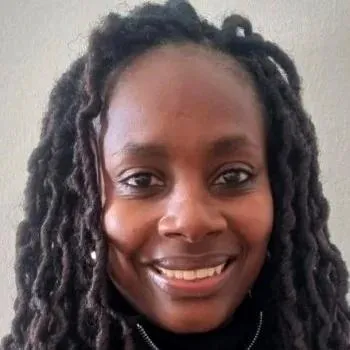
Dr Yvette Hlophe, Senior Lecturer, Department of Physiology, University of Pretoria
Image: Supplied
World Mental Health Day, observed earlier this month, provided an annual reminder that mental health is not a secondary need but a cornerstone of human resilience and recovery.
And the 2025 theme, ‘Mental health in humanitarian emergencies,’ underscores the urgent need to strengthen access to mental health services and psychosocial support during times of crisis—whether born from conflict, displacement, natural disasters, or public health emergencies.
While humanitarian responses often focus on physical survival – providing food, shelter, and medical care — psychological well-being is just as vital.
But mental health support is frequently overlooked during crises due to stigma, lack of awareness, and competing priorities.
Psychological and emotional well-being are often seen as secondary needs. To address this gap, it is important that mental health be more intentionally integrated into humanitarian and public health responses.
This effort can begin with empowering first responders, community health workers, and volunteers through basic psychological first aid training, endorsed by the World Health Organization (WHO), the Red Cross and Red Crescent Movement, and organisations such as UNICEF and Mental Health First Aid International.
The focus is not on professional therapy but rather on allowing people to feel safe, calm, and supported and assisting them in accessing further help if needed.
Humanitarian crises destabilise every aspect of life. They strip individuals and families of security, belonging, and routine. When people face displacement, homelessness, or chronic poverty, they also confront fear, uncertainty, and loss.
For refugees and asylum seekers – especially those who have fled xenophobic violence – the trauma is compounded by feelings of rejection and invisibility. Public health emergencies, such as pandemics, introduce isolation and anxiety that further erode resilience.
The mental health impact is cumulative, manifesting as chronic stress, depression, and even hopelessness. Without psychosocial support, these wounds can persist long after physical recovery.
Common mental health challenges among survivors of humanitarian crises include post-traumatic stress disorder (PTSD), anxiety, depression, and grief-related difficulties. Many individuals experience survivor’s guilt or a loss of agency, feeling powerless to change their circumstances. An important observation is that distress is often expressed physically – through headaches, fatigue, or body pain – because mental health struggles remain stigmatised in many cultures.
This reminds us that culturally sensitive mental health care is crucial. Healing must take into account the individual’s social and cultural context.
The biggest misconception is that mental health can wait until “after the crisis”. In reality, mental health is the foundation for recovery. When people receive emotional and psychological support, they can rebuild their lives with dignity and purpose. Addressing mental health during emergencies is a lifeline that restores humanity and strengthens resilience.
Educators in higher education are uniquely placed to prepare future professionals to respond holistically. This preparation begins with cultivating empathy and self-awareness. Health sciences students should be trained in trauma-informed care and empathetic communication. Basic mental health education should be considered and integrated into disciplines, from the basic sciences right through to all clinical disciplines.
Community-based learning is a powerful tool – students who engage directly with vulnerable populations develop both technical and emotional competence. Collaborative initiatives across disciplines, such as psychology, social work, and medicine, will strengthen the collective understanding and therefore the response when it is needed.
Human connection is an important part of healthcare. It takes courage to be empathetic and care. To listen deeply, to withhold judgement, and to meet others where they are. Resilience is not about ignoring or suppressing pain but about recognising one’s pain and suffering and drawing strength through connection with supportive people and networks.
I encourage everyone to check in with each other and create safe spaces for open conversations.
Healing begins when we feel seen and supported. As a caring society, we share a responsibility to foster environments that promote mental well-being, inclusion, and hope.
Dr Yvette Hlophe, Senior Lecturer, Department of Physiology, University of Pretoria